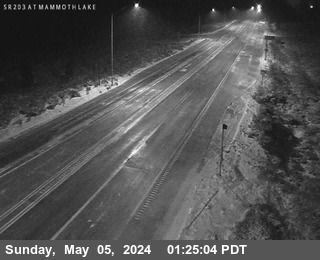Brought to you by Howard Sheckter
Archive for February, 2016
East Asian Upper Jet continues to Retreat westward over the pacific with Omega Block setting up this weekend with Upper Ridge building over California……
Friday February 5, 2016
Saturday AM:
Forecasted warming by models for Mammoth:
+7 degrees of warming Saturday (47); and another +1 for Sunday (48), +3 for Monday (51) and +6 for Tuesday (57). Thereafter, a very slow cool down into the following weekend.
Lows in the teens and 20s….then low 30s by early next week at 8K.
Winds over the crest very light today…They will begin to pick up Sunday Afternoon out of the east and be 30 to 40 mph Monday. Upper flow backs from the SW again Tuesday as closed upper high breaks down. SW flow will slowly ramp up over the crest next week between Tuesday PM and Saturday…..Gusty winds may extend down to the lower slopes by early Thursday…
Outlook:
We may have some light snowfall next weekend to freshen up the base… The storm will probably split, as the mean ridge, although weaker………Remains over the west…..
The Dweeber…………………………….:-)
———————————————————————————————————————————————————————————————————————————————————————–
Sometimes we have January thaws and sometime they develop in February. It is of no consequence as the results are the same……IE A mild to warm dry period. In the case of the next 7 days, it is highlighted by an Omega Block favoring a strong upper ridge over the far west. Over the next 10 days, this is expected to be our mid-winter thaw. Here in Mono Country, the pattern change will allow the local snow leaden tree branches shed, roofs to slide and an opportunity for drive ways to melt. This is also an opportunity for those to get the snow off the eves to prevent ice dams.
As far as the weather goes, high temperatures will climb to within 5 degrees of the record warm spell of 1951 where highs reached into the low to upper 70s in the Owens Valley, (the early to mid part of next week). (Upper 50s in Mammoth Lakes)
If you do not like the pause in winter, you can blame it on the Madden Julian Oscillation (MJO). A phenomenon of tropical forcing that ultimately modulates and demodulates the westerlies by the extension or contraction of the East Asian Jet. When using the MJO composite’s in relation to the time of year, its location over the pacific, with the strength of ENSO in mind, it can give you an increase of confidence of what we can expect, weather wise. This is true some 2 to 3 weeks out in the future. Thus, this inter-seasonal signal is another addition to the weatherman’s arsenal in longer range or inter-seasonal forecasting.
Each global model has its opinion on the strength of the MJO. The European model, as no surprise, is doing a better job this winter during this particular strong ENSO event. It appears to be less confused or has better bias correction in conjunction with the ENSO base state. It performed very well last December in accurately forecasting the extension of the EAJ that resulted in an AR event over Northern CA northward the first week of January.
Outlook:
Although we may have few light to moderate storms beginning as early as the weekend of the 13th, or that following week, the El Nino and the constructively interfered MJO influence for the next storm cycle is looking good for the end of the month and early March.
The MJO is again forecasting the same to happen during the last week of February as it travels into Phase 7 then 8. However, this time seasonally, odds are greater that its impact and focus of the AR will be much further south, like Southern and Central CA. This is because the upper jet is stronger at or near its peak climatically. (As a note; it will be important for the MJO to remain strong through the phase spaces 6 and 7 as depicted by the ECMWF). So that by the time it reaches Phase Space 7, it can do its magic! IE a strong extension of the East Asian jet.
For those that are model watchers; look for:
- After several Gulf of AK storms moving through the mean west coast ridge after the week of the 15th….
- Look for strong amplification and “RETROGRESSION” of the eastern pacific high, over the eastern pacific punching up into AK week 3, possibly resulting in a closed anti cyclone well north over the Gulf of AK.
- This may begin around the 21st of February. (The Dweebs will fine tune later)
- The ECMWF “EPS” has the closed anti cyclone formed over Southern AK on the 24th of February.
- Thereafter, a very wet pattern emerges for the central and southern west coast as the EAJ “undercuts” the closed anti-cyclone over Alaska shortly afterwards, and the excitement begins!
So enjoy the break and get ready for Winters Best!!
Dr Howard and the Dweebs………………………..:-)




